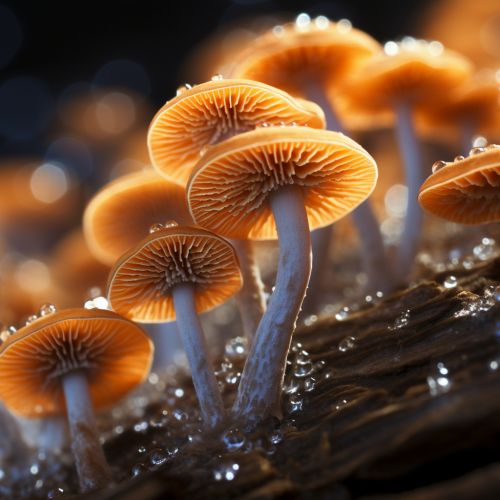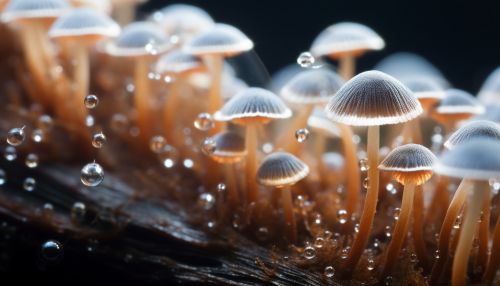Cladosporium
Overview
Cladosporium is a genus of fungi that includes some of the most common indoor and outdoor molds. Species produce olive-green to brown or black colonies, and have dark-pigmented conidia that are formed in simple or branching chains. The many species of Cladosporium are commonly found on living and dead plant material. Some species are plant pathogens, others parasitize other fungi.


Taxonomy and Classification
The genus Cladosporium belongs to the phylum Ascomycota, the largest phylum of Fungi, with over 64,000 species. The name "Cladosporium" comes from the Greek words "klados", meaning branch, and "spora", meaning seed, which refers to the branched chains of spores that are a characteristic of the genus.
Morphology
Cladosporium species are characterized by their darkly pigmented, multicellular conidia, which are asexual spores produced by some fungi. The conidia are produced in branched chains, and each individual conidium is oval or round in shape, and contains several cells. The hyphae, which are the filamentous structures that make up the body of the fungus, are typically pale brown in color and have a smooth texture.
Ecology
Cladosporium species are found in a wide range of environments, both indoors and outdoors. They are common on dead and decaying plant material, and can also be found on the leaves and stems of living plants. Some species are pathogenic to plants, causing diseases such as leaf spots and rots. Cladosporium species are also common in indoor environments, where they can grow on damp surfaces such as wallpaper, carpet, and window sills.
Health Effects
Exposure to Cladosporium species can cause a variety of health effects. The spores can cause allergic reactions, including hay fever and asthma. Some species can also cause skin and nail infections. In rare cases, Cladosporium species can cause more serious infections, particularly in people with weakened immune systems.
Economic Impact
Cladosporium species can have a significant economic impact, particularly as pathogens of crops. They can cause significant yield losses in a variety of crops, including cereals, fruits, and vegetables. In indoor environments, Cladosporium species can cause damage to building materials and furnishings, and can also contribute to poor indoor air quality.
